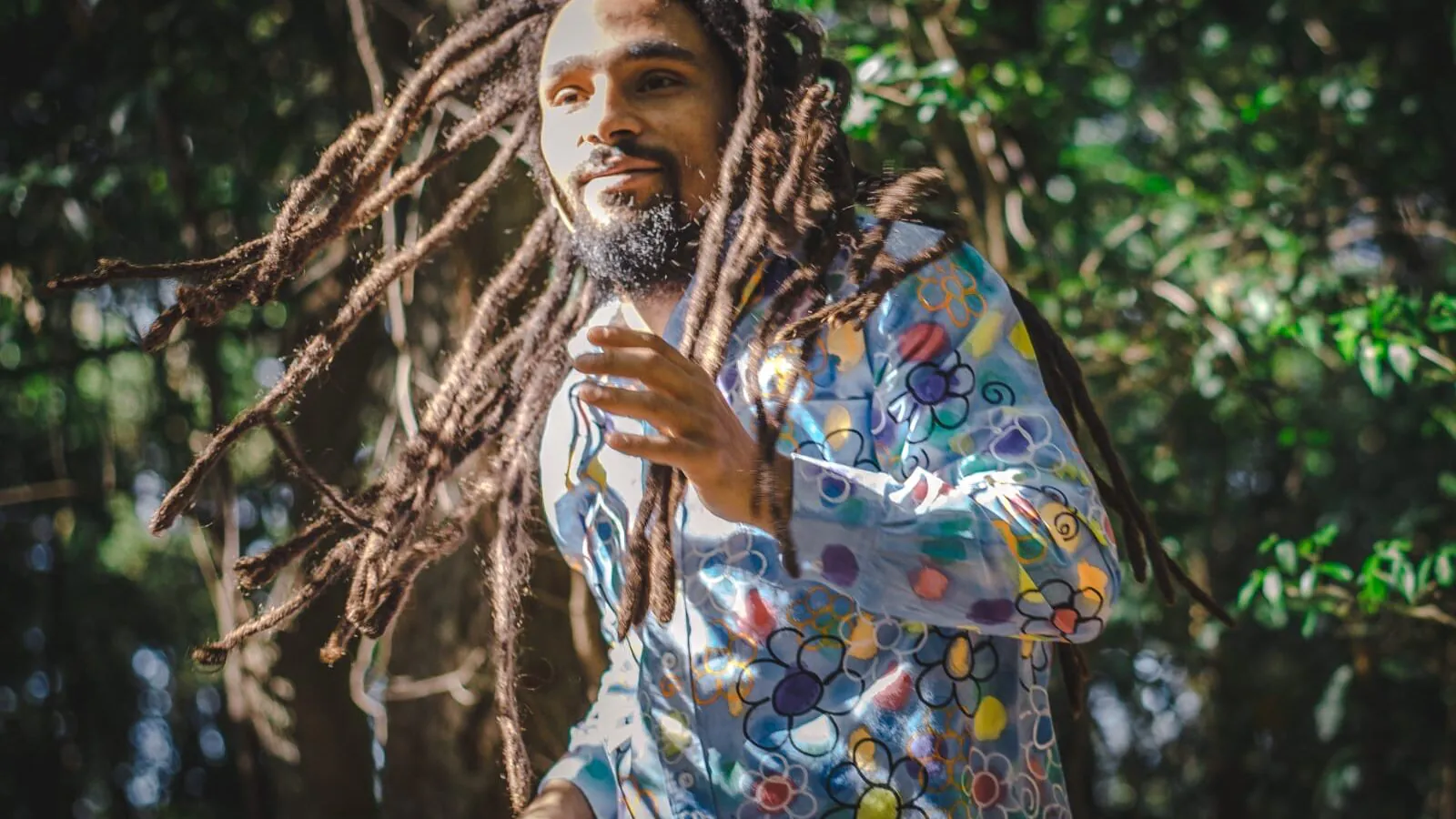More about the workshop:
VERSÃO EM PORTUGUÊS – click here
Côco, cafurna, mazurka, brinquedo ou folguedo de roda are the various names given to a popular game that emerged during the era of slavery in the coconut plantations of northeastern Brazil. This game is a mix of indigenous, African and Portuguese traditions and influences, and happens in a circle format. The ‘repente’ aspect (also a striking characteristic of this rhythm) uses improvisation and quick reasoning to have the best resolution to life’s problems in song.
The workshop aims at a complete approach to Samba de Côco, not only as a rhythm and dance, but also, approaching this “brinquedo” (play) in its various aspects including the history of the Brazilian people, as well as the reality of the Northeastern people, habits, customs, forms of expression and even forms of cultivation.
The extension of the theme to other aspects, such as the making of ganzás with recycled materials, appears to be a current form of interpretation and continuous construction of the coconut samba culture. This contact and respect for nature is present in the lyrics, in the Côco masters, and in the songs of these people, and also in the primitive heritage of the rhythm that occurs in the cultivation of the coconut, as food, drink, instrument and medicine.
Currently, the Côco tradition persists in the “popular game” in the states of Pernambuco, Paraíba and Alagoas with its derivations, among them coco de roda, coco de umbigada, and coco de embolada (repente), amongst other. In its musical aspect, the percussion instruments used are ganzá, zabumba, matraca, maraca and tambourine, in addition to the body itself.
What to expect from the session
Aims of the workshop:
- Provide rhythmic and bodily experiences of the universe of Samba de Côco through percussion playing, polyrhythm clapping, traditional singing, historical contextualization, presentations and discussions of the development of traditional instruments, encouragement of composition, and teaching of poetic metrics.
- Stimulate the capacity for improvisation and respect for human beings through the ancestral knowledge of the Brazilian people.
- Encourage respect for nature, as well as knowledge and use of coconuts and various plants to improve people’s quality of life.
Samba de Côco, as a popular expression, uses oral transmission as an ancestral source of knowledge, education and wisdom. This set of song, rhythm and dance born during slavery became strength and educational stimulus for a suffering population that to this day lives with the consequences of the social abyss built since the beginning of the formation of the Brazilian people. In this way, the culture of Samba de Côco has always been one of the great educational vehicles in communities, teaching and strengthening Brazilian roots.
Who is Guga Santos?
Guga Santos is a musician, composer, visual artist and art educator. He trained with great Masters of art and popular culture, with Mestre Sapo in capoeira Angola, with Iza do Amparo in the plastic arts and with Mestre Salustiano in popular cultures. He began working professionally with music at the age of 14 and since then has participated in the recording of several CDs with artists such as Erasto and Naná Vasconcelos, Mestre Salustiano, Alessandra Leão and Renata Rosa. He has already performed eight European tours, two in South America and several in different regions of Brazil.
He has diverse experience in music education through lectures with historical context and aimed at educators, percussion instrument workshops and experiences in popular Pernambuco rhythms, such as Cavalo Marinho, Coco Samba, Capoeira Angola and Maracatu de Baque Virado. He worked on resocialization projects for children and young people at risk, with special needs and on musical education projects aimed at adults and children, both in Brazil and France.
We are so pleased he could join us here in Manchester again to give us this very special gift.
Time:
7:15pm – 9:30pm (arrive 7pm)
Venue:
The Vale (theatre space), Unit 2 Vale Mill, Micklehurst Road, Mossley, Ashton-under-Lyne, OL5 9JL
Access:
If you have any access requirements to be able to attend, please complete the form at the base of this page, or let us know via email or phone ([email protected] / 01618706895).

